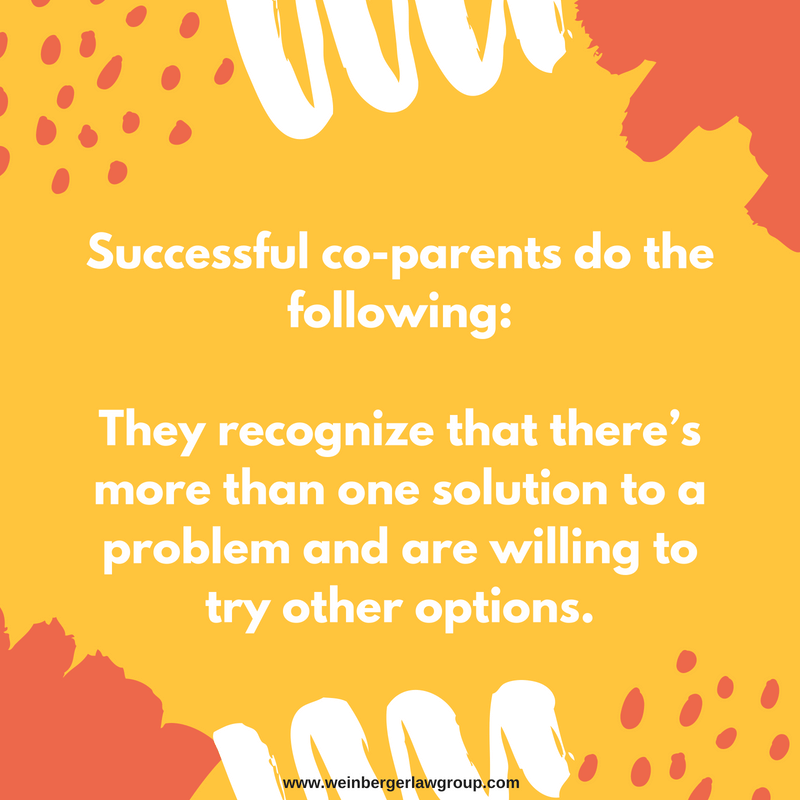Co-Parenting Conflicts: How To Hold It Together When Discussing Your Kids

Do co-parenting conversations with your ex often end in a barrage of angry words, thoughts, and feelings? Do you feel that you and your former spouse are incapable of agreeing on even the weather? Consider this: what you’re arguing about isn’t the issue. Your emotional reactivity is. You can learn to be an effective co-parent by following this three-step process:
1. Put your feelings about your ex on the shelf.
Feelings aren’t facts, so stop letting them dictate how you co-parent. Unless your ex is putting your children in legitimate danger, your opinion of your former spouse should have no bearing on discussions about your kids. It’s quite possible that your anger, resentment, and fear are convincing you that what your ex wants is unreasonable, when the opposite may be true. Acting on your feelings– instead of facts — will make it almost impossible to exchange necessary information and work out important matters, such as where to send Sally to elementary school.
Unless you want a judge to make parenting time decisions for you (not recommended!), you must learn to step back from your over-heated emotions. Before you talk with or write to your co-parent, imagine putting your feelings on a shelf. Address only the matter at hand. Don’t get side-tracked by your ex’s inability to manage his or her own feelings. When you feel a surge of anger, put it back on the shelf and shift your focus to the goal of the conversation: figuring out child-related issues.
2. Focus on skill-building.
Once you accept that unchecked emotions will keep you from effective co-parenting discussions, it’s time to focus on building conflict resolution skills. Successful co-parents do the following:
- They recognize that there’s more than one solution to a problem and are willing to try other options. Example: “Our co-parenting therapy is court-ordered, but we have trouble being in the same room together. I was thinking we could ask the therapist to see each of us alone, and then sit together at the end. What do you think about that? Do you have another suggestion?”
- They acknowledge the other parent’s concerns, whether or not they agree. Example: “I’m hearing how important the holidays are to you, and how much you’d like to spend Thanksgiving with the kids.”
- They keep the conversation focused on facts and goals. Example: “I realize you you’d like to have the kids on Thanksgiving, but according to the court order, this is my year, so let’s stick to that.”
3. Detach from the outcome of your conversation.
You can’t control what your ex thinks, feels, or does. All you can do is sweep your own side of the street and focus on the issue to be discussed. Becoming attached to your desire to have your co-parent do what you want won’t get him or her to do what you want. It will just make you more tense during the discussion and frustrate you when things don’t go according to your plan. So set your intention to have a successful conversation and let go of the results.
If you’re entrenched in high-conflict co-parenting, altering that dynamic is still possible. And you don’t have to wait for your ex to adopt these strategies. Continue practicing this three-step process: manage your own emotions, implement conflict resolution skills, and detach from the outcome.
Over time, no matter what your ex does, you’ll find that you’re no longer the victim of your feelings because you’ve learned to focus on what matters.
Have questions about your custody and parenting time arrangements? Get answers and start safeguarding your children and your future. Please contact us to schedule an initial attorney consultation: 888-888-0919, or click the button below.
Schedule an Initial Consultation




